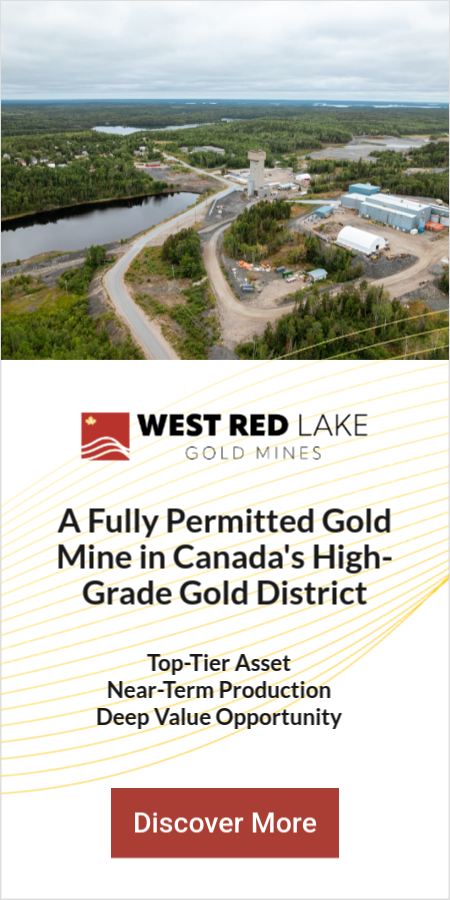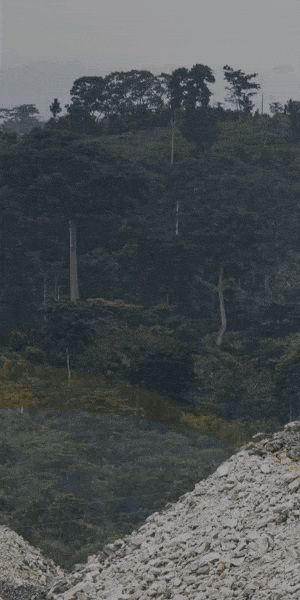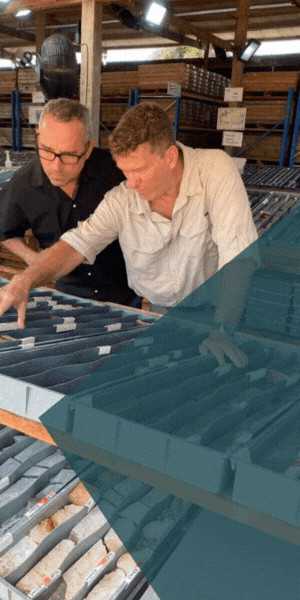Mining in Tanzania: A Hub for Exploration & Investment

Explore Tanzania's mining sector: gold, nickel, graphite, key players like Lifezone, Perseus, TRX, and Walkabout, plus insights on MSP and investment opportunities.
- Tanzania is a resource-rich country offering significant opportunities for mining, with deposits of gold, nickel, graphite, and rare earth minerals.
- Companies like Lifezone Metals, Perseus Mining, TRX Gold Corporation, and Walkabout Resources are leading major projects in the region, driving exploration, development, and production.
- The Minerals Security Partnership (MSP) could bring capital, market access, and geopolitical advantages to critical mineral projects like Lifezone's Kabanga Nickel Project.
- Gold remains a cornerstone of Tanzania’s mining industry, with TRX Gold and Perseus Mining leading production and development efforts.
- Recent developments in regulatory reforms, local content policies, and international partnerships have positioned Tanzania as a competitive player in the global mining sector.
Introduction to Tanzania’s Mining Sector
Tanzania, located in East Africa, is one of the continent's largest producers of minerals, including gold, nickel, and gemstones. The country boasts a robust mining industry that contributes significantly to its economy, accounting for approximately 7% of GDP in 2020. As part of its Vision 2025 strategy, Tanzania aims to increase the sector's contribution to 10% of GDP by focusing on sustainability, local participation, and value addition.
The government's proactive approach to attract investment, alongside a diverse mineral portfolio, has made Tanzania a hotspot for both established and emerging mining companies. However, challenges such as regulatory changes and local content requirements remain critical for investors to navigate.
Key Players in Tanzanian Mining
Lifezone Metals
Lifezone Metals is spearheading the Kabanga Nickel Project in northwestern Tanzania, a venture critical for global electric vehicle (EV) battery production. Kabanga is considered one of the world's largest undeveloped high-grade nickel sulfide deposits. The project aligns with the goals of the Minerals Security Partnership (MSP), which seeks to secure and diversify global critical mineral supply chains. With potential backing from MSP, Lifezone could gain access to funding and international markets, solidifying Tanzania’s role in the clean energy transition.
Perseus Mining
Perseus Mining, an Australian-based gold producer, has made significant strides with its acquisition of the Nyanzaga Gold Project. Located in the Lake Victoria Goldfields, the project is expected to produce 295,000 ounces of gold annually, marking it as a cornerstone of Tanzania’s gold mining future. While gold is not classified as a critical mineral under the MSP, Perseus’s proactive expansion and strategic international partnerships, such as its agreement with Saudi Arabia’s Ajlan & Bros Mining, position it to capitalize on emerging opportunities in Africa and beyond.
TRX Gold Corporation
TRX Gold Corporation operates the Buckreef Gold Project, one of Tanzania’s flagship gold ventures. The project is fully licensed and includes multiple gold prospects, supported by a processing plant that has expanded to handle 1,000 tonnes per day. TRX has prioritized efficient production and is leveraging Tanzania’s supportive regulatory environment to enhance its operations. As gold remains a key driver of Tanzania's mining economy, TRX is a vital contributor to the sector's growth.
Walkabout Resources
Walkabout Resources, an Australian mining company, is developing the Lindi Jumbo Graphite Project in southeastern Tanzania. The project focuses on high-grade, large-flake graphite, essential for battery and industrial applications. Construction is nearing completion, with production expected to begin soon. Given the increasing global demand for graphite in clean energy technologies, Walkabout is well-positioned to benefit from international partnerships and market opportunities.
Regulatory Framework & Investment Climate
Resource Abundance & Economic Impact
Tanzania offers a resource-rich environment for mining companies, with abundant deposits of gold, diamonds, coal, and natural gas. The mining sector significantly contributes to the national economy, accounting for approximately 7% of the GDP in 2020 and employing over 310,000 Tanzanians.[1]
Regulatory Environment
The primary legislation governing mining activities is the Mining Act of 2010, which has undergone amendments to enhance regulation. The Mining Commission oversees the sector, handling the issuance and management of mineral rights[2]. In 2017, the government introduced laws to increase its share in mining revenues and ensure greater local participation. These reforms included:
- Natural Wealth and Resources (Permanent Sovereignty) Act
- Natural Wealth and Resources Contracts (Review and Renegotiation of Unconscionable Terms) Act[3]
Local Content Requirements
Tanzania emphasizes local content in the mining sector. Regulations mandate that at least 20% of a mining company operating in Tanzania must be owned by Tanzanian citizens[4]. Additionally, the government encourages mining companies to procure local goods and services whenever possible, aiming to boost the domestic economy[5].
Recent Developments
In September 2024, the Tanzania Mining Commission mandated that all mining firms and traders exporting gold reserve at least 20% of their output for sale to the Central Bank of Tanzania. This directive aims to diversify and bolster the country's foreign reserves[6].
Investment Climate
The Tanzanian government actively seeks to attract both local and foreign investment in the mining sector. In 2023, Tanzanian companies sold goods and services worth USD 1.48 billion to mines, accounting for 90% of all sales made to mines[7]. The government has also implemented strategies to enhance the mining sector's productivity and growth, aiming to increase its contribution to 10% of the GDP by 2025[8].
Challenges
Despite the favorable investment climate, mining companies may face challenges such as regulatory changes, local content requirements, and the need to navigate complex legal frameworks. However, the government's commitment to improving the investment climate and infrastructure development presents opportunities for growth in the sector.
The Minerals Security Partnership & Its Potential Impact
The Minerals Security Partnership (MSP) is an international initiative launched in 2022 to secure and diversify global critical mineral supply chains, a priority for nations transitioning to clean energy technologies. Spearheaded by the United States and allied nations, the MSP aims to reduce reliance on single sources for critical minerals like nickel, graphite, lithium, and rare earth elements—materials vital for electric vehicles, renewable energy infrastructure, and advanced technology.
Tanzania, with its vast reserves of nickel and graphite, stands to benefit significantly from MSP-backed investments. Lifezone’s Kabanga Nickel Project, in particular, could attract funding and technical support to accelerate development.
For companies like Walkabout Resources, the MSP offers access to advanced technologies and international markets. While gold-focused companies like Perseus Mining and TRX Gold are less directly aligned with MSP goals, the partnership indirectly benefits the sector by boosting Tanzania’s mining ecosystem and global standing.
Objectives of the MSP
- Diversify Supply Chains: Reduce global dependency on critical mineral supplies from a limited number of countries, ensuring stability and security in supply.
- Promote Responsible Mining: Support projects that meet stringent environmental, social, and governance (ESG) standards.
- Foster Investment: Facilitate capital flow into critical mineral projects globally, particularly in developing countries with significant resource potential.
- Encourage Innovation: Develop advanced mining and processing technologies to enhance sustainability and efficiency.
MSP’s Alignment with Tanzania’s Mining Sector
Tanzania, with its abundant deposits of nickel, graphite, and rare earth elements, is strategically positioned to benefit from MSP initiatives. The country's robust reserves of critical minerals are essential for clean energy technologies, making it a target for MSP-backed investment and development.
Key Benefits for Tanzania
- Access to Global Markets: Tanzanian mining projects aligned with MSP objectives gain preferential access to international markets, particularly in MSP-member countries.
- Investment and Financing: MSP provides access to capital for infrastructure, mining, and processing facilities. For example, Lifezone Metals' Kabanga Nickel Project could secure MSP funding due to its alignment with global EV supply chain priorities.
- Technical Expertise and Technology Transfer: MSP member nations bring cutting-edge mining and processing technologies, boosting the efficiency and sustainability of mining operations in Tanzania.
- Geopolitical and Economic Stability: MSP involvement signals confidence in Tanzania as a mining destination, attracting foreign direct investment and reducing political risks.
Potential Impact on Tanzanian Companies
Lifezone Metals: Kabanga Nickel Project
The Kabanga Nickel Project exemplifies the type of initiative MSP seeks to support. With one of the world's largest undeveloped nickel sulfide deposits, Kabanga is critical for EV battery production. By aligning with MSP, Lifezone Metals could receive the following:
- Investment support: MSP countries, particularly the United States, are prioritizing nickel for EV production.
- Market access: Nickel from Kabanga could find stable buyers in MSP-member nations.
- Technology transfer: MSP can facilitate partnerships to incorporate innovative, low-carbon nickel extraction methods.
Walkabout Resources: Lindi Jumbo Graphite Project
Graphite, a critical component in lithium-ion batteries, places Walkabout Resources’ Lindi Jumbo Graphite Project in an advantageous position. MSP’s focus on securing graphite supply chains aligns with the project's objectives. Walkabout could benefit through:
- Export agreements: Secure agreements with MSP nations seeking sustainable graphite supply.
- Funding: Access to MSP-driven investment for project scaling and infrastructure improvements.
Other Companies
- Perseus Mining and TRX Gold Corporation: While primarily gold-focused, these companies benefit indirectly from MSP’s impact on the broader mining ecosystem in Tanzania. As the MSP increases attention and investment in Tanzanian mining, gold producers may find it easier to access infrastructure improvements and investor interest due to the heightened focus on the region.
Challenges & Considerations
Despite the benefits, several challenges could limit the impact of MSP on Tanzania's mining sector:
- ESG Compliance: Mining companies must meet strict environmental and social standards to qualify for MSP funding, requiring additional investment in responsible mining practices.
- Regulatory Risks: Tanzania's local content requirements and other policies might create friction between foreign investors and the government.
- Global Competition: Tanzania must compete with other resource-rich countries to attract MSP attention and funding.
A Transformational Opportunity
The MSP represents a game-changing opportunity for Tanzania’s critical mineral sector. By fostering investment, promoting responsible mining, and ensuring stable market access, the MSP can unlock the potential of projects like Kabanga Nickel and Lindi Jumbo Graphite. With a strategic focus and proactive engagement, Tanzania could emerge as a critical player in the global clean energy transition, securing long-term economic and environmental benefits.
Conclusion
Tanzania’s mining sector offers a unique combination of resource wealth, regulatory reform, and strategic importance in global supply chains. Companies like Lifezone Metals, Perseus Mining, TRX Gold Corporation, and Walkabout Resources are shaping the country’s mining future through innovative projects and international partnerships. With the Minerals Security Partnership and growing demand for critical and traditional minerals, Tanzania is poised to become a major player in the global mining landscape.
References
[1] Statista (May 2024) - Mining Industry in Tanzania - Statistics & Facts
[2] Dentons (December 2020) - Mining in Tanzania
[3] Clyde & Co (October 2024) - Practical Guidance for Tanzania’s Mining Sector
[4] Mining Review (February 2020) - Mining in Tanzania - The Good, the Bad and the Ugly
[5] Trade.gov (December 2022) - Tanzania - Mining - International Trade Administration
[6] Reuters - (September 2027) - Tanzania Orders Gold Dealers to Reserve 20% for Purchase by C.Bank
[7] Madini - Republic of Tanzania - Ministry of Minerals
[8] Africa 24 (April 2024) - Tanzania's Mining Sector: On the Brink of a New Prosperous Era
Analyst's Notes




Subscribe to Our Channel
Stay Informed








































